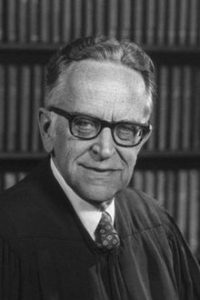Donald J. Trump says the U.S. Supreme Court has settled the issue of gay marriage, ruling that the 14th Amendment to the U.S. Constitution provides “equal protection” under the law to gay couples, thus allowing them to marry legally.
The president-elect made the right call there.
But wait a second!
What about abortion? The High Court also has ruled that women have a constitutional right to make decisions regarding their own bodies, that they are allowed to terminate a pregnancy. They cited the same 14th Amendment’s “right of privacy” provision, as noted in Justice Harry Blackmun’s opinion.
Is it settled law? One would think so.
Trump, though, has said he’s going to find someone to fill the vacancy on the Supreme Court who opposes abortion, who would help overturn the landmark Roe v. Wade decision of 1973.
Isn’t the Roe v. Wade decision “settled law” as well, just as much as the gay marriage decision of just a couple of years ago?
I should note, I suppose, that Trump once was adamantly pro-choice on the abortion issue. Now he is just as adamantly pro-life on the matter.
Trump now plans to apply the abortion litmus test to whomever he selects to the court post vacated by the death earlier this year of longtime conservative icon Justice Antonin Scalia.
Presidents normally say they don’t set up such tests for potential Supreme Court nominees … but of course they do. I’ll give Trump credit at least for all but admitting out loud he has established one critical benchmark for whomever he chooses to fill the court vacancy.
The credit, though, must be tempered by the “settled law” notion that the president-elect applies to one key social issue of our time while refusing to apply it to another.
